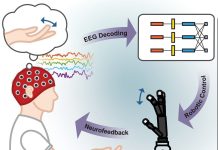
Ever heard of ‘cancer fog’? Many breast cancer patients and survivors describe it as a frustrating state where they struggle to think clearly, concentrate, or remember things.
Also known as ‘chemo brain’ or ‘brain fog’, it’s believed to be a side effect of chemotherapy.
The Culprit: Reduced Blood Flow in the Brain?
A ground-breaking study from the University of Southern Queensland may have revealed what causes cancer fog.
The researchers, led by Ph.D. student Tahnee Downs, suggest that reduced cerebrovascular function – that’s decreased blood flow in the brain – might be to blame. And this discovery could help in developing new treatments for cognitive impairments.
Comparing the Cognitive Abilities of Breast Cancer Survivors and Cancer-free Women
Downs and her team compared the cerebrovascular function and cognition of 15 breast cancer survivors and 15 cancer-free women of similar age and body mass index.
They used transcranial Doppler ultrasound, a special type of ultrasound, to measure how the brain’s blood vessels respond to physical and psychological stimuli. The participants also completed several cognitive tests.
The Results: Lower Cognitive Function in Breast Cancer Survivors
The study found that the overall cognitive function of the breast cancer survivors was 13% lower compared to the cancer-free women.
The researchers also observed that the breast cancer survivors’ brain blood vessels responded less effectively to physical (44% lower) and psychological stimuli (9% lower).
The Link: Lower Physical Activity Levels and Higher Fatigue
The team noted that on average, the breast cancer survivors reported lower levels of physical activity and experienced higher fatigue levels.
Dr. Edward Bliss, Downs’ supervisor, suggests that due to fatigue, the survivors might be less inclined to engage in regular physical activity, which could worsen their fatigue.
However, his previous research has shown that regular exercise can significantly improve brain health in older adults with metabolic syndrome and reduce the risk of cognitive decline.
Moving Forward: Exercise for Brain Health
As cognition is a demanding function, the brain needs more nutrients and oxygen to work effectively. And the best way to get these nutrients and oxygen to the brain?
Regular exercise. Hence, the team plans to study further the effects of exercise on brain health, particularly cognition and cerebrovascular function, in women diagnosed with breast cancer.
They’ve even partnered with charity group Blush Cancer Care and The Fit Lab Toowoomba, which offer exercise programs for women with breast cancer.
With breast cancer predicted to affect one in seven women before the age of 85, this research is crucial in improving the quality of life of breast cancer survivors.
If you care about cancer, please see recent studies about new ways to increase the longevity of cancer survivors, and results showing new ways to supercharge cancer-fighting T cells.
For more information about health, please see recent studies about how drinking milk affects the risks of heart disease and cancer and results showing that vitamin D supplements could strongly reduce cancer death.
The study was published in The Breast.
Follow us on Twitter for more articles about this topic.
Copyright © 2023 Knowridge Science Report. All rights reserved.



